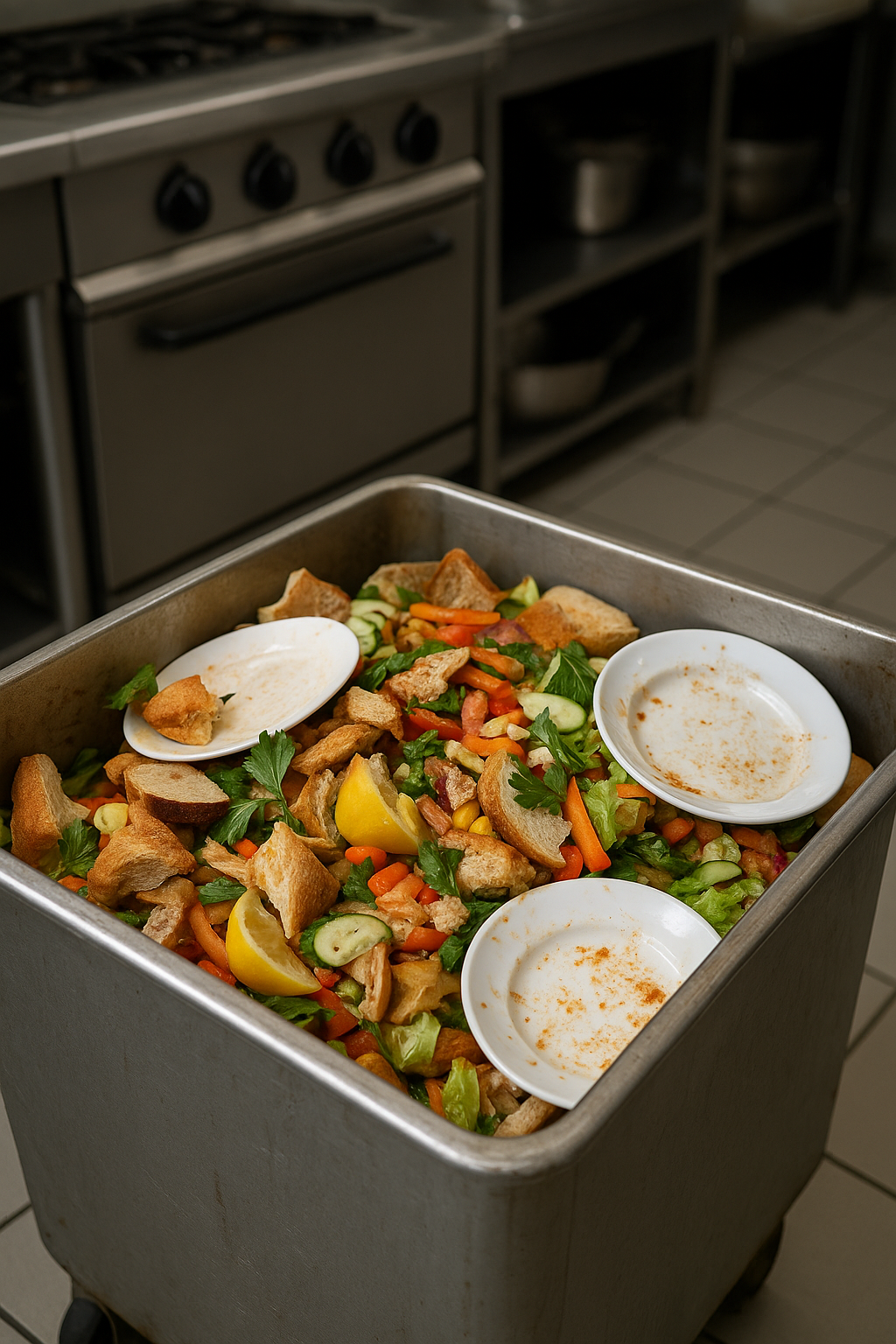AI in food waste management: How restaurants tackle waste and boost sustainability
Among the technologies, Too Good To Go emerged as the top choice across all scenarios. Its standout feature lies in its surplus food redistribution model, which allows restaurants to sell excess meals directly to consumers through a mobile application. This approach minimizes food waste while generating additional revenue, making it particularly suited to settings where advanced infrastructure is not readily available.

Restaurants across the globe face mounting pressure to reduce food waste, cut costs, and meet sustainability goals. A new study reveals how artificial intelligence (AI) can transform waste management practices in restaurant operations, particularly in resource-constrained economies.
Published in Processes, the research "Food Waste Reduction AI Technologies in Restaurant Management: An MS-TORO Approach" applies an advanced optimization framework to identify the most effective AI-based technologies for minimizing food waste while balancing costs and operational challenges.
The findings assert that AI-driven waste management could become a cornerstone of both economic resilience and environmental stewardship.
Which AI technologies perform best in reducing food waste?
The study evaluates four AI-driven technologies, Winnow Vision, Leanpath, Too Good To Go, and Kitro, using the Multiple Stakeholder Target-Oriented Robust Optimization (MS-TORO) framework. This model considers multiple factors, including cost, data accuracy, waste reduction efficiency, and resource requirements, while factoring in the diverse goals of stakeholders under conditions of uncertainty.
Among the technologies, Too Good To Go emerged as the top choice across all scenarios. Its standout feature lies in its surplus food redistribution model, which allows restaurants to sell excess meals directly to consumers through a mobile application. This approach minimizes food waste while generating additional revenue, making it particularly suited to settings where advanced infrastructure is not readily available.
The model ranked Kitro second for its strong data analytics and real-time monitoring capabilities, although its higher infrastructure demands present challenges for small establishments. Winnow Vision, known for using computer vision to track waste, ranked third, while Leanpath came fourth due to its higher operational costs despite offering valuable predictive insights.
What are the impacts of AI adoption on restaurant operations?
The research incorporates input from restaurant managers, chefs, and kitchen staff in the Philippines. Their feedback highlights significant operational benefits after adopting AI-based food waste solutions.
Restaurants reported a 46 percent increase in efficiency, with many experiencing substantial reductions in food waste. Over half of the surveyed establishments noted waste decreased significantly, while others observed minor improvements or no change, often linked to implementation challenges. Staff also indicated that AI tools simplified kitchen operations, cutting preparation time and easing inventory management.
Moreover, AI-enhanced systems improved decision-making by predicting demand, optimizing ingredient use, and generating new recipes from near-expiry products. This not only minimized waste but also enhanced customer satisfaction by supporting menu innovation. The study underscores that AI adoption directly contributes to higher productivity and better resource allocation, even when economic and technical hurdles remain.
How can developing nations overcome barriers to AI-driven waste reduction?
The research reveals that economic constraints and infrastructural limitations pose significant obstacles for restaurants in developing countries. Many small and medium-sized enterprises (SMEs) struggle to finance the high initial costs of AI solutions, and limited digital infrastructure further hampers adoption.
The study recommends a multi-faceted strategy to overcome these barriers. Government incentives, such as subsidies and tax benefits, could make AI solutions more accessible to small businesses. Public–private partnerships are also essential to promote knowledge sharing and provide training to restaurant operators. Additionally, integrating AI-driven food waste initiatives with broader food security programs and sustainability projects can amplify their impact, particularly in nations where food scarcity remains a pressing issue.
The MS-TORO approach itself proves to be a powerful decision-making tool, balancing conflicting stakeholder goals and adapting to uncertain conditions. By considering both economic realities and operational constraints, it guides restaurants toward selecting technologies that deliver the greatest overall benefit. The study’s findings suggest that robust, data-driven frameworks like MS-TORO can inform future policies and investments in sustainable food management.
- FIRST PUBLISHED IN:
- Devdiscourse










